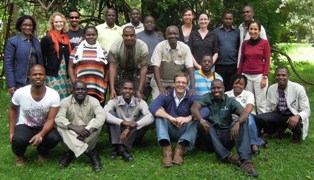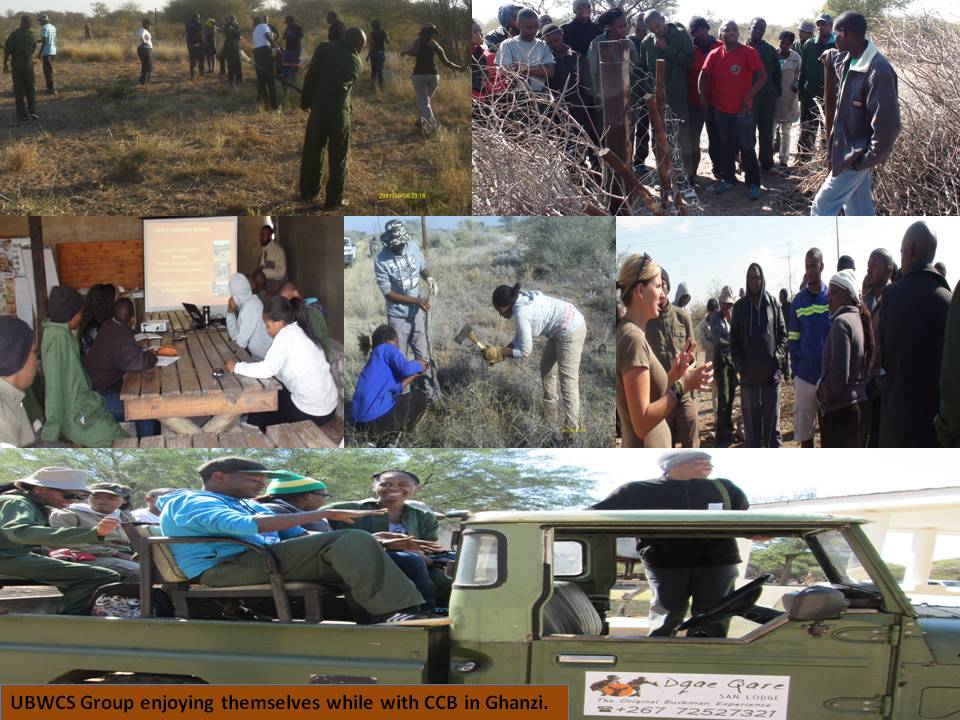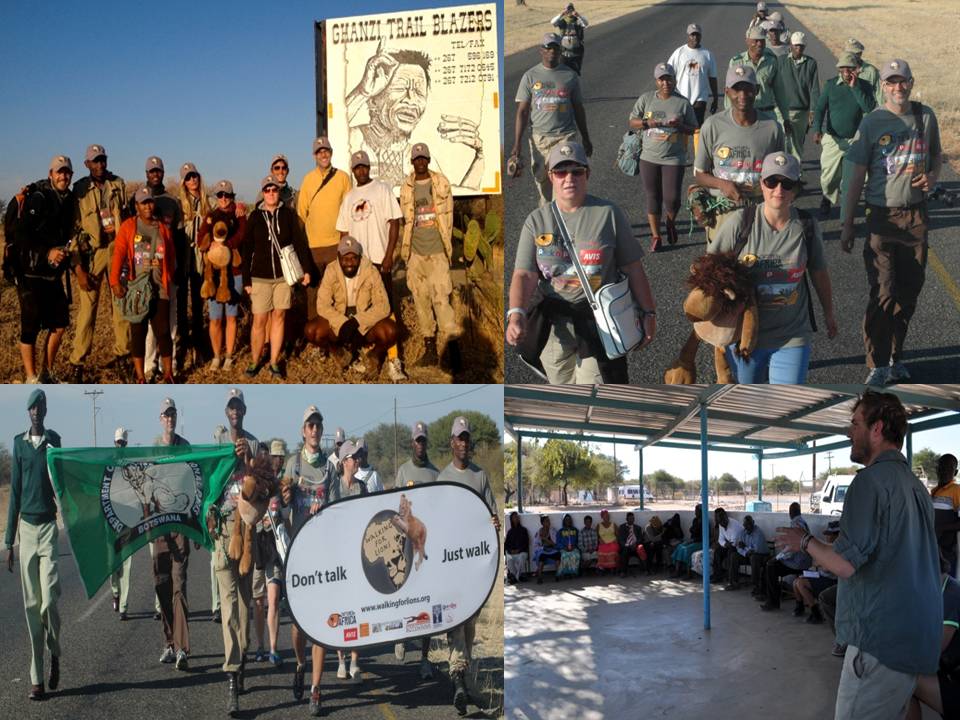|
Ghanzi Community Officer, Mr Phale Seele had an opportunity to attend Advanced Human Wildlife Conflict training in Arusha, Tanzania supported by Wildlife Conservation Network from the 27-31 May 2013. It was an advanced training that looked at Analyzing and Transforming Conflict to create sustainable solutions for people and wildlife. The goal of the training was to improve practitioner and leader effectiveness to use social conflicts as opportunities to effect long-term positive change in the conservation context.
0 Comments
The Kalahari San people are reknowned for their intricate knowledge of their environment and incredible tracking abilities. CCB has a long history of utilizing the skills of San trackers and they are providing new insights into the status of cheetahs in the farmlands of the region, Our research department has initiated a tracking study to search for large predators in the farms of the Ghanzi District. Looking at predator densities, movement patterns, relationships between species and their interactions can help us in building mitigation methods to combat the human wildlife conflict that threatens many predator species in this area. The collection of scats also enables us to build our database for our diet analysis, genetics research and helps to demonstrate that cheetahs rarely make livestock kills, preferring wild game species. This can have a beneficial effect on the tolerance of farmers in the region who perceive cheetahs to be a regular livestock threat. The University of Botswana Wildlife Conservation Society (UBWCS) is a student- oriented environmental club mainly concerned with the safeguarding of Botswana wildlife, environmental conservation and awareness. They offer voluntary services to different non-governmental organizations, local schools and Botswana communities. They also collaborate with these organizations in environmental activities and events such as fairs and commemoration days.
On a voluntary basis and in order to have conservation fun, CCB hosted UBWCS at Ghanzi Education camp for 5 days, between the dates of 21st – 26th May 2013. The purpose of the visit was to carry out hands-on activities in and around Ghanzi camp, to share ideas, experiences and learning from each other about the environmental issues in Botswana, discussions on wildlife conservation, human wildlife conflict as well as livestock management issues. The volunteers had a friendly debate with Ghanzi based Itekeng Junior School Environmental Club discussing the motion: Endangered Species Should be Protected. UBWCS did a play where issues such as human wildlife conflict, illegal game hunting, corruption, poaching were presented. The group had an excursion to Dqae Qare San Lodge, Walking for Lions presentation by Marnus Roodbol and a campfire every night where they shared stories and experiences of each and every day. Both the UBWCS volunteers and CCB staff were happy about the outcome from this visit and we are looking forward to having them again at some of our environmental education activities. Botswana is not new to wildlife conservation as it is one of the few countries that have been hailed in this mission across the world. Cheetah Conservation Botswana (CCB) in May this year joined a South African based not-for-profit organization, Walking for Lions (WFL) in their mission to support and raise awareness for lion and predator conservation. WFL founder, Marnus Roodbol together with a group of 4 brave volunteers tackled the challenge and walked from Windhoek to Ghanzi to raise funds and awareness for the plight of the lions. The 535km journey from Windhoek started on May 4 2013 and ended on the 20th May 2013 to a welcoming party in Ghanzi, an average walking distance of 30km each day. WFL approached CCB for their support as they shared similar goals to host them at their Ghanzi based camp and accompany them on their proposed activities. As a result, CCB joined forces with Walking for Lions, inviting them into the Ghanzi District in the hope that they could bring with them insights into how farmers can learn to live with the lions of Botswana without threat of livestock loss or physical harm. The WFL team as they approached Ghanzi, they were joined by CCB staff members, Botswana’s Department of Wildlife and National Parks, Ghanzi Police and farmers from the district. The meeting place was the Kalahari Arms Hotel gardens. The welcoming remarks were done by Ghanzi Chief, Mr. Botshelo Lekgothu on behalf of the Ghanzi community. WFL leader, Mr. Marnus Roodbol added a few words and presented the Chief with t-shirts and caps as a token of appreciation. Mr. Leshope from Ghanzi DWNP, PAC office gave his overview on this campaign’s effort and elaborated his offices’ support for such initiatives while Ms. Jane Horgan from CCB gave a vote of thanks on behalf of the CCB team. This paved way for networking, forming relations and for the Botswana Daily News team to have their chance at interviewing Mr. Roodbol. The WFL team spent some time in the area visiting prime lion habitat in the Central Kalahari Game Reserve on the 20th – 22nd, hosting a community meeting with the farmers of D’kar on the 23rd and conducting educational school talks at Ghanzi’s Itekeng Junior School on the 24th. They shared ideas about lion conservation, spreading the word about why lion preservation is important for the economy and for the environment and discussing ideas about how coexistence between farmers and large predators can be achieved. CCB and WFL both maintain a strong belief that the key to helping solve human-carnivore conflict is to find solutions that benefit both the wildlife and communities. Clips of the walk were posted daily on social media networks such as facebook, twitter and you tube. Sustainable, practical, affordable solutions to human-wildlife conflict that benefit communities and preserve threatened species are the key to the success of Botswana’s tourism sector, agriculture and the health of its environment. Organizations working towards this goal have to work together with community members to assure the survival of these species for future generations. |
SearchArchives
May 2024
Categories |




 RSS Feed
RSS Feed
